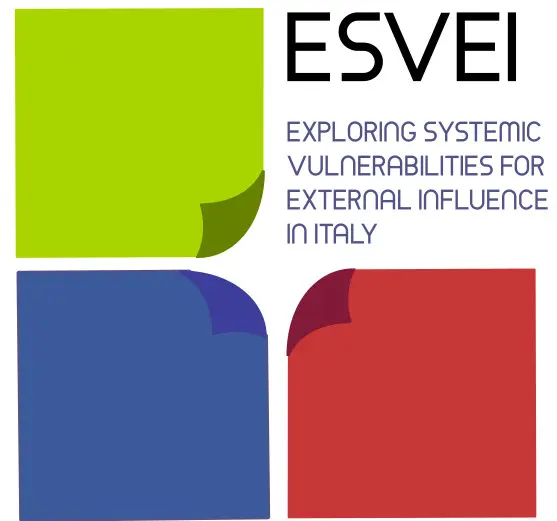ESVEI
Start date: 01/10/2018
End date: 31/12/2020
Funder: OSIFE
Operational unit: OBC Transeuropa

ESVEI tackles structural issues that in recent years are increasing the vulnerability to external interference of democratic processes, taking Italy as a case study. It aims at increasing awareness, initiating policy debates, and providing sensible, forward-looking policy recommendations in three domains that are central to democratic processes in modern societies, but that, due to inadequate regulations and poor practices, needlessly expose such processes to meddling: social media and disinformation; transparency of funding and lobbying; cybersecurity.
See the pages:

ESVEI ESVEI Cybersecurity ESVEI Transparency of funding and lobbying ESVEI social media and disinformation




